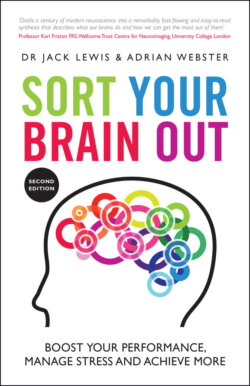Читать книгу Sort Your Brain Out - Джек Льюис, Адриан Вебстер - Страница 14
A touchscreen nightmare
ОглавлениеShortly after buying my first ever iPhone I seriously began to wonder if I'd made the right choice. I loved the phone but as soon as my fingers went anywhere near its touch screen, they inexplicably felt enormous! In comparison to using my old phone, sending texts and emails took ages.
It's only now since writing this chapter with Jack that I've suddenly realized that I'd totally forgotten about this problem. I'm back up to my old speed and my once super‐sized fingers have returned to normal. Brain plasticity in action, yet again.
– Adrian
Talking about new technology, consider a time when a friend or relative from an older generation was introduced to the internet for the first time. They might well have been pretty useless to begin with, but before you knew it they'd worked out how to forward those “funny” email circulars that you probably remember not being particularly amusing the first time round!
Older people can learn new tricks. There's no doubt about that. Convincing older people that this is the case can be tricky sometimes – old habits and stubborn mindsets can be tough to shift. But with a bit of self‐belief, a regular schedule of practise and a step‐by‐step approach that helps to focus the mind on a sequence of bite‐sized chunks, the only real difference is that older people learn with a slight reduction in speed. And this rate of learning depends largely on how recently they've successfully acquired a new ability, which in turn is powerfully influenced by how motivated a person is to embrace the discomfort of trying new things (that might make them feel stupid) throughout their adult life.
Adults who forever enjoy developing themselves and furthering their talents – whether it be learning a new language, doing some spare time studies, taking up a new sport or pursuing a newfound hobby – usually pick up most skills relatively quickly. That is by comparison with those who, since hitting adulthood, have never really stretched their brains, instead remaining happily cocooned, feet up and slippers on, in their same old comfy routines.
Understanding neuroplasticity inspires the dedication needed to tweak your habits to challenge your brain to expand your range of skills.
